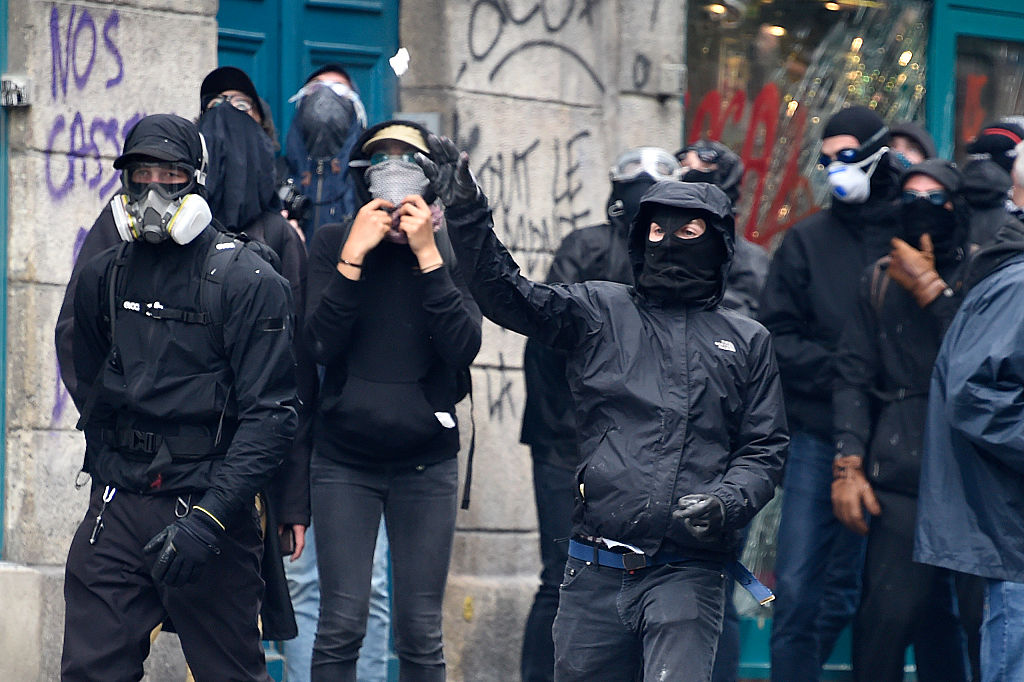The French have an expression to describe far-left citizens who identity more with Islam than the Republic: ‘Islamo-Gauchiste’, a term coined by the French philosopher Pierre-André Taguieff, who explained in 2017 that many on the far-left regard jihadism as:
“…a legitimate social revolt…they look at jihadists through a distorting lens of victimhood. This compassionate approach sees Islamic terrorists only as lost children, abandoned or rejected by unwelcoming and hostile countries, victims of ‘institutional’ or ‘systematic’ racism”.
The symbiosis between the Western far-left and Islamism has been ongoing for decades, and stems from the left’s realisation of their failure to win the hearts and minds of the white working-class. In his book ‘Radicalisation’, the French-Iranian professor, Farhad Khosrokhavar, described how one of the major influences of the 1979 Iranian Revolution was Ali Shariati, who:
“…called for a revolutionary Shia movement, which would realise the dream of Marx and al-Mahdi (the twelfth hidden imam, the Shia Messiah) by mobilising the masses. What secular revolutions had been unable to achieve, revolution in the name of Islam would finally bring about”.
Karl Marx once described religion as the “opium of the people” but Islamism is more a political movement than a religion. This enables the far-left to identify with Islamists in the way an earlier generation did with the Red Brigade, Action Directe and the Red Army Faction, because they see it as the best means to overthrow the capitalist West.
A 2014 report stated that 23 per cent of France’s 1,132 jihadists fighting in the Middle East were converts, most hailing from a left-wing milieu. “Jihadism is the current format of radicalisation,” explained the political scientist Olivier Roy. “In the 1970s they would have been drawn to Maoism or one of the other extreme-left groups”.
Islamist attacks in France usually elicit a feeble response, if any at all, from the far-left. After Saturday’s knife attack in Paris by an Isis supporter, which left one man dead and four others wounded, political figures from the left and the right tweeted messages of support for the victims and gratitude for the courage of the police, whose rapid response prevented the terrorist stabbing more people. Jean-Luc Mélenchon, leader of La France Insoumise tweeted his “compassion” for the victims but there was no mention of the attack on the party’s official Twitter page.
There was silence from another famous face of the far-left, Philippe Poutou. Poutou represented the New Anticapitalist Party in last year’s presidential election and during the campaign declared that the police should be disarmed. A former anarchist turned communist, Poutou embodies all the most virulent elements of the far-left, a man who says he opposes anti-Semitism but in the same tweet reminds his followers that one must “combat the political extremism and colonialist Israel, who oppress the Palestinian people”. Poutou also recently excused the violence of Black Bloc, the far-left activists who ran wild through a district of Paris on May Day, destroying or damaging more than 30 business premises and hurling rocks at the police. Accusing the government of being the true wreckers, Poutou added that “the real violence is that of the ultra-rich, those capitalists who monopolise the wealth and cause misery for millions of people”.
In France, Islamists are targeting Jews with alarming frequency – hence the letter in a newspaper last month warning of their ‘ethnic purging’ – while the far-left go after the police. As well as battling Black Bloc in recent weeks, police have also clashed with radical environmentalists, Marxist students and a minority of striking railwaymen.
It’s not uncommon on these occasions to see placards with slogans such as ‘One bullet = one cop’; when one officer suffered serious burns during last year’s traditional May Day parade violence in Paris, the hard-left CGT union joked on social media that he was a “grilled chicken”. That was mild, however, in comparison to what Stéphane Poussier tweeted after the death of Arnaud Beltrame in March. No matter that the policeman had sacrificed his life to save a female hostage during an Islamist attack on a supermarket, according to Poussier, who stood for France Insoumise in last year’s parliamentary elections, his death was “great” because it meant one less voter for Emmanuel Macron. Add the constant threat from Islamic terrorism and it’s little wonder that at the start of this year one police association chief warned that the police (65 of whom committed suicide in 2017) were nearing exhaustion.
On Tuesday, the police in France launch a €1m (£880,000) recruitment campaign in response to the rising threat posed by the far-left and Islamic extremists. “The police have never had problems recruiting,” explained their director-general, Éric Morvan, who hopes to enlist 8,000 men and women in the next four years. “The objective of this campaign is to generate a maximum number of candidates because the more we get the easier it will be to select the best”.
They will need to be good because there will be no let up in the violence and terror in the years ahead as Marxists and Islamists continue to work together to bring about their French revolution.







Comments